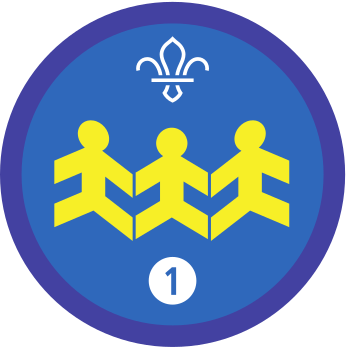Community begins at home
You’ll need
- A4 paper
- Coloured pens or pencils
Before you begin
- Local authorities vary across the UK – the sort of local government you have, and what they cover, will depend on where you live. You can find out more about the kinds of local government (and how they’re structured) on the Institute for Government’s website.
- Check out your local authority’s website to see what they do – they may cover all sorts of things including housing, education, waste collection, libraries, and transport. It’s useful to have a basic understanding (and some examples) before you start chatting to young people.
Question time
- Everyone should look at the topics their local authority covers. They should also look at the UN Sustainable Development Goals. How does their local authority try to meet these goals? If it’s not trying at the moment, what could it do?
- Everyone should split into teams of four or five people.
- Each team should choose one aspect of their local authority. They should think of questions they’d like to ask, focusing on how everyone in the community can work together to achieve the Sustainable Development Goals. They should think about who they’d like to ask – depending on who they’re asking, their questions may change a bit.
- Each team should choose one or two main questions they’d like to ask.
- Everyone should come back together. They should check that teams’ questions aren’t too similar. Each team should choose the question they’d like to ask, as well as a backup question if there’s time.
Plan the visit
- The person leading the activity should plan the visit. What it looks like will be a bit different for everyone, as it’ll depend a lot on the local authority.
- You may want to ask if it’d be possible to have: a tour of the site or office (that explains what happens there), time for the group to ask questions (which you could send over in advance), and information about a project or service they could get involved in.
- Sort out the details, such as when and where you’ll meet, and how you’ll travel (together or separately). Make sure everything’s clearly communicated with parents and carers and you have all of the consent you need.
After the visit
- Everyone should get back into their teams.
- Each team should think about the answer they got to their question. What did they find out? Could they find out more information, for example, by looking online for similar cases?
- Everyone should think about how they could take the issue further. Could they work towards the linked Sustainable Development Goal in their local area?
Reflection
This activity was all about being a citizen and helping the community. It gave everyone an inside view of how their local area’s governed. Understanding how your community functions is a really important part of being a local citizen. How do the things that people discussed affect people’s lives? Did anyone learn anything new about where they live? It’s important that people understand what’s going on in their community so they can take an active role and help others. Which areas of their local area do people think need action? How could they make their area a better place?
Safety
All activities must be safely managed. You must complete a thorough risk assessment and take appropriate steps to reduce risk. Use the safety checklist to help you plan and risk assess your activity. Always get approval for the activity, and have suitable supervision and an InTouch process.
- Why not present your findings (and plans) to the rest of the group? You could choose to use a video, pitch, article, or any other format.
- Your visit will look different depending on which aspect of the local authority you visit. For example, an emergency service will be different to a political or administrative centre.
When you arrange your visit, make sure it’s accessible for everyone, including people with additional needs or access needs. Don’t forget to think about how people will get to the location, as well as getting inside and looking around.
All Scout activities should be inclusive and accessible.
If you identified a way for your group to help with an issue in their community, you could take action and work towards the Community Impact Staged Activity Badge.
People could also take their questions to the next level by writing to their local authority or even their MP.
This activity’s a great chance for young people to explore their own interests and concerns. What matters to them in their local and wider communities? What do they want to know?

